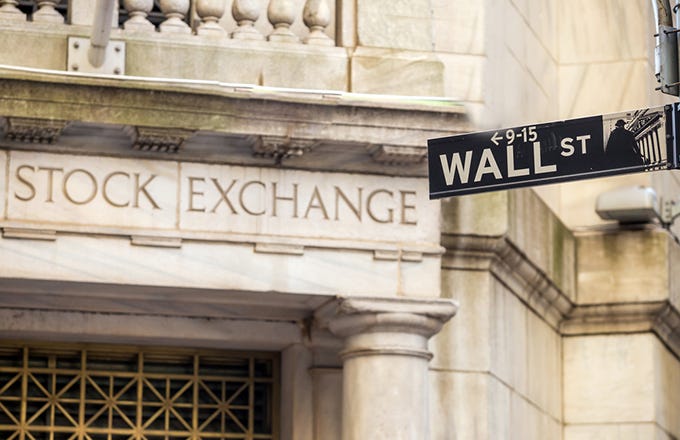By Amy Fontinelle
Numerous issues make up the social constellation of the ethical investing universe. Many of these issues have to do with a company's relationships with outsiders (we'll cover relationships with workers and with shareholders in later sections). Let's begin by examining the kinds of relationships companies can choose to have with their suppliers.
Supplier Relations
Socially responsible investors want to know that the companies they invest in have mutually beneficial and respectful relationships with their suppliers. They want to see that companies are working with high-quality suppliers that don't cut corners and those suppliers are held to the same ethics standards the company holds itself to. It doesn't do much good for a company to claim that it doesn't use sweatshop labor if it buys merchandise from a supplier who does.
Some investors worry that powerful companies force suppliers' prices down and don't pay them fairly; other investors might argue that if a supplier agrees to do business, the relationship must benefit them, and that if it doesn't, the supplier is free to exit the relationship as soon as any existing contracts expire.
According to the Domini Funds website, "Information on supplier contracts tends to be anecdotal and usually surfaces for a relatively limited number of corporations that are exceptional on either the upside or the downside." Thus, investors may find themselves in the dark when it comes to a company's relationships with the members of its supply chain. If this information is especially important to them, they can take an activist position and try to get companies to disclose this information.
Community Relations
Every company impacts the communities where it operates. The question is whether that impact is negative or positive. Often, it's a combination of both. A new store might increase competition and give consumers lower-priced options, but it might take market shares away from existing businesses in the community. A new distribution center might create hundreds of jobs, but increase 18-wheeler traffic on local highways and roads.
Companies can make ethical decisions about the way they operate to maximize positive effects, and minimize negative effects on the community. They can also make charitable contributions to the community by donating a portion of profits, doing volunteer work, sponsoring the local little league team or helping out with community fundraisers. For example, Johnson and Johnson, in its 2010 Contributions Report, states that the company works with hundreds of community-based programs on initiatives such as disaster relief and maternal and children's health. The company also double-matched its employees' charitable donations, and gave a total of $603.3 million in cash and products. Newsweek ranked the company near the top at No. 4 in its 2010 environmental rankings of America's largest 500 publicly traded companies. (For more, see Employee Benefits: How To Know What To Choose.)
Screening out Sin
One of an ethical investor's foremost concerns will be the nature of the product, or service, a company sells. Some investors want nothing to do with a company that sells a product or service that's harmful or addictive. The stocks of these companies are called "sin stocks," and the companies that most commonly fall into this category are those that sell products or services related to pornography, tobacco, alcohol, weapons or gambling. Such investors would avoid companies like Phillip Morris (the U.S.'s largest cigarette manufacturer), Anheuser-Busch InBev (owner of numerous beer brands) or MGM Resorts International (which owns several casinos).
Other investors don't see these companies as sinful. They think it's up to the individual to make responsible choices regarding products and services that have the potential for abuse. (For more, check out Socially Responsible Investing Vs. Sin Stocks.)
Government Interactions
Any company that is large enough to be publicly traded must interact with the government on a number of levels, from Securities and Exchange regulations to consumer safety regulations to environmental regulations and more. How the company chooses to behave in those interactions says a lot about the integrity of its managers and executives.
Some businesses lobby the government to win special treatment via subsidies, tax loopholes, regulatory loopholes and even regulations that punish competitors.
Financial journalist Charles Gasparino writes about a major instance of this problem in his book, "Bought and Paid For: The Unholy Alliance Between Barack Obama and Wall Street." Not only did the government bailout a number of Wall Street firms during the financial crisis, but when federal, state and local governments borrow money, they turn to Wall Street firms, so it's in Wall Street's best interest for government debt levels to remain high. All Americans, then, pay the price in the form of higher taxes. A socially responsible investor might want to avoid these firms.
Economist Bruce Yandle is well known for his bootleggers and Baptists theory, which explains how groups whose interests would seem to be in opposition often work together to achieve a mutually beneficial, but unsavory, goal. In his 2010 article, "We Want to Be Regulated," Yandle points out that while most people think big corporations want minimal government regulation, the opposite is often true. For example, a company that produces clean technology might lobby the government for tighter restrictions on a more polluting version of a similar technology. Why? Because regulations that not only favor one company but also make life harder for its competitors are likely to increase the favored company's revenues. Ethical investors must ask themselves if they want to profit from companies that lobby the government to help them earn their profits.
The number of social issues a company must contend with is too large to cover here, but supplier relations, community relations, customer satisfaction and government interactions are some of the key issues. In the next section, we'll examine how companies choose to interact with their workers. (Learn more in The Pitfalls Of Financial Regulation.)
Ethical Investing: Workers' Rights and Human Rights
Numerous issues make up the social constellation of the ethical investing universe. Many of these issues have to do with a company's relationships with outsiders (we'll cover relationships with workers and with shareholders in later sections). Let's begin by examining the kinds of relationships companies can choose to have with their suppliers.
Supplier Relations
Socially responsible investors want to know that the companies they invest in have mutually beneficial and respectful relationships with their suppliers. They want to see that companies are working with high-quality suppliers that don't cut corners and those suppliers are held to the same ethics standards the company holds itself to. It doesn't do much good for a company to claim that it doesn't use sweatshop labor if it buys merchandise from a supplier who does.
Some investors worry that powerful companies force suppliers' prices down and don't pay them fairly; other investors might argue that if a supplier agrees to do business, the relationship must benefit them, and that if it doesn't, the supplier is free to exit the relationship as soon as any existing contracts expire.
According to the Domini Funds website, "Information on supplier contracts tends to be anecdotal and usually surfaces for a relatively limited number of corporations that are exceptional on either the upside or the downside." Thus, investors may find themselves in the dark when it comes to a company's relationships with the members of its supply chain. If this information is especially important to them, they can take an activist position and try to get companies to disclose this information.
Community Relations
Every company impacts the communities where it operates. The question is whether that impact is negative or positive. Often, it's a combination of both. A new store might increase competition and give consumers lower-priced options, but it might take market shares away from existing businesses in the community. A new distribution center might create hundreds of jobs, but increase 18-wheeler traffic on local highways and roads.
Companies can make ethical decisions about the way they operate to maximize positive effects, and minimize negative effects on the community. They can also make charitable contributions to the community by donating a portion of profits, doing volunteer work, sponsoring the local little league team or helping out with community fundraisers. For example, Johnson and Johnson, in its 2010 Contributions Report, states that the company works with hundreds of community-based programs on initiatives such as disaster relief and maternal and children's health. The company also double-matched its employees' charitable donations, and gave a total of $603.3 million in cash and products. Newsweek ranked the company near the top at No. 4 in its 2010 environmental rankings of America's largest 500 publicly traded companies. (For more, see Employee Benefits: How To Know What To Choose.)
Screening out Sin
One of an ethical investor's foremost concerns will be the nature of the product, or service, a company sells. Some investors want nothing to do with a company that sells a product or service that's harmful or addictive. The stocks of these companies are called "sin stocks," and the companies that most commonly fall into this category are those that sell products or services related to pornography, tobacco, alcohol, weapons or gambling. Such investors would avoid companies like Phillip Morris (the U.S.'s largest cigarette manufacturer), Anheuser-Busch InBev (owner of numerous beer brands) or MGM Resorts International (which owns several casinos).
Other investors don't see these companies as sinful. They think it's up to the individual to make responsible choices regarding products and services that have the potential for abuse. (For more, check out Socially Responsible Investing Vs. Sin Stocks.)
Government Interactions
Any company that is large enough to be publicly traded must interact with the government on a number of levels, from Securities and Exchange regulations to consumer safety regulations to environmental regulations and more. How the company chooses to behave in those interactions says a lot about the integrity of its managers and executives.
Some businesses lobby the government to win special treatment via subsidies, tax loopholes, regulatory loopholes and even regulations that punish competitors.
Financial journalist Charles Gasparino writes about a major instance of this problem in his book, "Bought and Paid For: The Unholy Alliance Between Barack Obama and Wall Street." Not only did the government bailout a number of Wall Street firms during the financial crisis, but when federal, state and local governments borrow money, they turn to Wall Street firms, so it's in Wall Street's best interest for government debt levels to remain high. All Americans, then, pay the price in the form of higher taxes. A socially responsible investor might want to avoid these firms.
Economist Bruce Yandle is well known for his bootleggers and Baptists theory, which explains how groups whose interests would seem to be in opposition often work together to achieve a mutually beneficial, but unsavory, goal. In his 2010 article, "We Want to Be Regulated," Yandle points out that while most people think big corporations want minimal government regulation, the opposite is often true. For example, a company that produces clean technology might lobby the government for tighter restrictions on a more polluting version of a similar technology. Why? Because regulations that not only favor one company but also make life harder for its competitors are likely to increase the favored company's revenues. Ethical investors must ask themselves if they want to profit from companies that lobby the government to help them earn their profits.
The number of social issues a company must contend with is too large to cover here, but supplier relations, community relations, customer satisfaction and government interactions are some of the key issues. In the next section, we'll examine how companies choose to interact with their workers. (Learn more in The Pitfalls Of Financial Regulation.)
Ethical Investing: Workers' Rights and Human Rights
Related Articles
-
 Investing
InvestingEthical Investing Tutorial
Learn everything there is to know about ethical investing. -
 Managing Wealth
Managing WealthGo Green With Socially Responsible Investing
Find out how morals and ethics can bring you a surprising return. -
 Investing
InvestingCommunity Investing 101
Discover a type of socially responsible investing that helps to contribute to noble causes close to home. -
 Investing
InvestingSocially Responsible Stocks: do Good Deeds Punish Profits?
Socially responsible investing doesn't mean accepting lower returns. Find out why squeaky-clean stocks shine as investments. -
 Investing
InvestingWhen Socially Responsible Investing Hurts
Socially responsible investing can make you feel good but it may not boost your returns. -
 Investing
InvestingImpact Investing: Improve the World and Your Portfolio
Socially responsible investing allows you to make a difference in the world or your community while potentially improving your portfolio.



